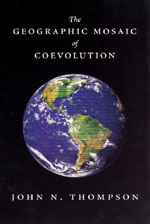Five press authors elected members of the American Academy of Arts and Sciences
The American Academy of Arts and Sciences has recently announced its new 2010 members. The University of Chicago Press is pleased to note that five of our authors have made the list:

Eric Posner, professor of law at the University of Chicago Law School has published several books with the Press including his 2009 publication The Perils of Global Legalism and his 2001 Cost-Benefit Analysis: Economic, Philosophical, and Legal Perspectives with co-editor Matthew D. Adler. His newest book co-edited with his colleague at the U of C law School, Cass R. Sunstein, engages in a fascinating study of the notion of happiness—or “hedonics”— as it relates to law and public policy. Law and Happiness brings together the best and most influential thinkers in this burgeoning field to explore the question of what makes up happiness—and what factors can be demonstrated to increase or decrease it.

Marc Shell, professor of English and comparative literature at Harvard University, has dedicated much of his published work to the study of the intersection between economics and aesthetics, including his 1995 publication Art & Money—a frank, provocative, and entirely unconventional look at two worlds in tandem, focusing on what binds together and drives apart the seemingly disparate subjects of its title. Illustrated with over one hundred halftones and eight color plates, this stunning volume forces a rethinking of our old presumptions about where money ends and art begins.

Garrett Stewart, professor of English at the University of Iowa has published several works with the Press, his most recent being Novel Violence: A Narratography of Victorian Fiction. In his book Stewart immerses himself in the troubling plots of Charles Dickens, Anne Brontë, George Eliot, and Thomas Hardy, to demonstrate how Victorian novels hurtle forward in prose as violent as the brutal human existence they chronicle. Stewart uses his brilliant new method of narratography to trace the microplots of language as they unfold syllable by syllable. By pinpointing where these linguistic narratives collide with the stories that give them context, he makes a powerful case for the centrality of verbal conflict to the experience of reading Victorian novels.

John N. Thompson, professor in the Department of Ecology and Evolutionary Biology at the University of California, Santa Cruz, has published several works with the Press dealing with reciprocal evolutionary changes in interacting species. In The Coevolutionary Process Thompson advances a new conceptual approach to the evolution of species interactions—the geographic mosaic theory of coevolution—to demonstrate how an integrated study of life histories, genetics, and the geographic structure of populations yields a broader understanding of coevolution. Picking up where his fist book leaves off, in his 2005 The Geographic Mosaic of Coevolution Thompson synthesizes the state of a rapidly developing science that integrates approaches from evolutionary ecology, population genetics, phylogeography, systematics, evolutionary biochemistry and physiology, and molecular biology. Using models, data, and hypotheses to develop a complete conceptual framework, Thompson also draws on examples from a wide range of taxa and environments, illustrating the expanding breadth and depth of research in coevolutionary biology.

Last but not least Yale ecologist Günter P. Wagner published his Modularity in Development and Evolution, co-edited by Gerhard Schlosser, with the Press in 2004. Wagner’s book offers the first sustained exploration of modules from developmental and evolutionary perspectives. Contributors discuss what modularity is, how it can be identified and modeled, how it originated and evolved, and its biological significance. Covering modules at levels ranging from genes to colonies, the book focuses on their roles not just in structures but also in processes such as gene regulation. Among many exciting findings, the contributors demonstrate how modules can highlight key constraints on evolutionary processes.
From the AAAS press release: “One of the nation’s oldest and most prestigious honorary societies … the American Academy of Arts and Sciences undertakes studies of complex and emerging problems. Its membership of scholars and practitioners from many disciplines and professions gives it a unique capacity to conduct a wide range of interdisciplinary, long-term policy research. Current projects focus on science and technology; global security; social policy and American institutions; the humanities and culture; and education.”
More, including a full listing of new 2010 members on the AAAS website. Congratulations to all!